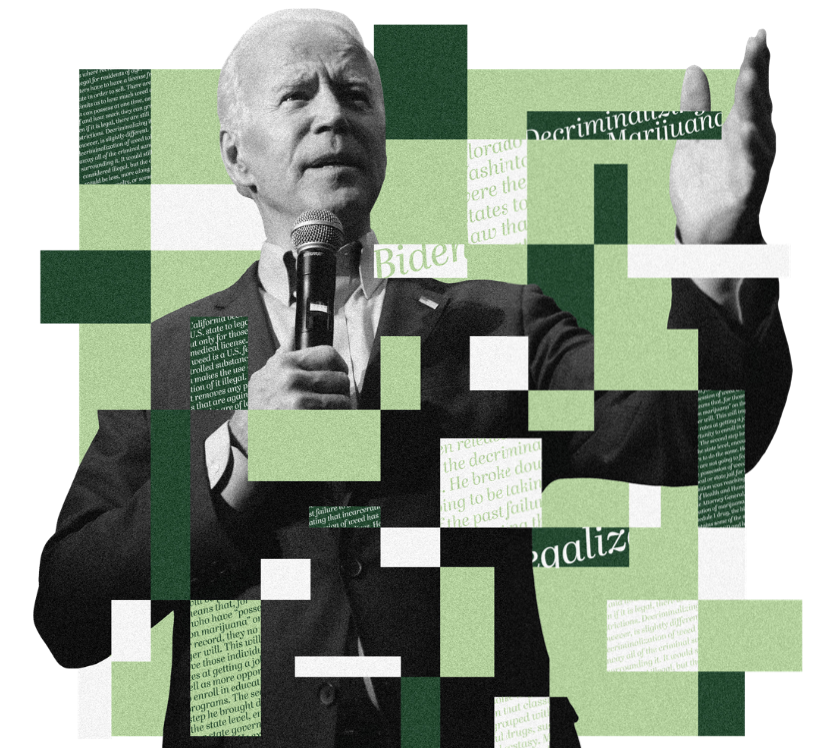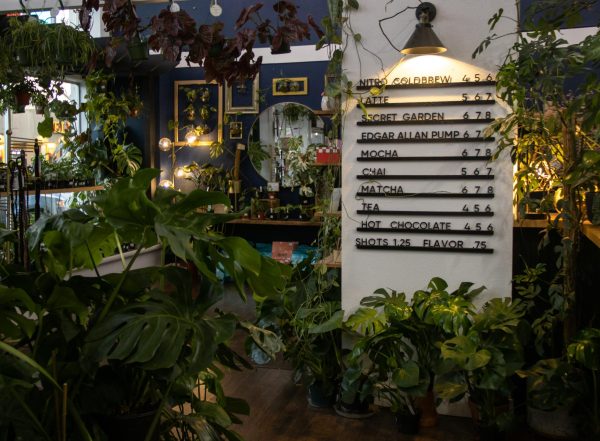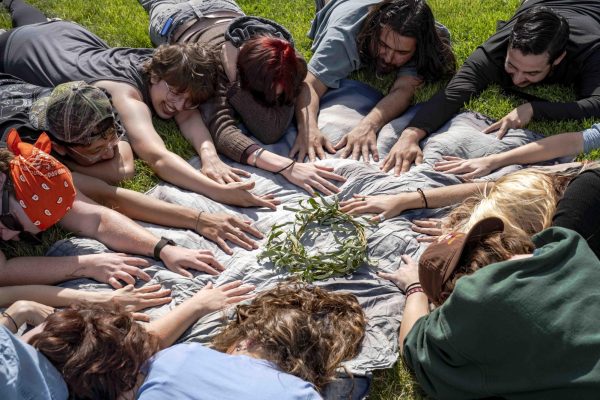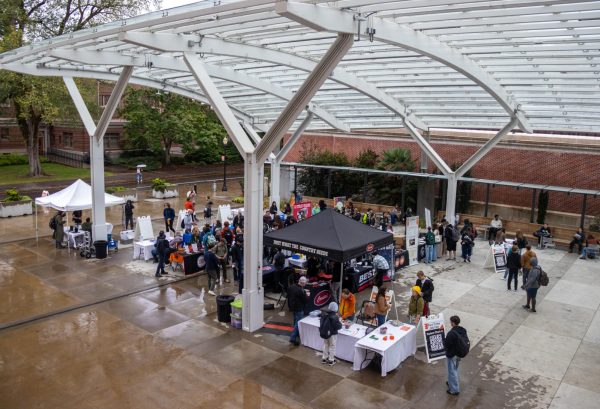Federal efforts to decriminalize cannabis & what it could mean for you
“Joe Biden” by Gage Skidmore is licensed under CC BY-SA 2.0. The image was taken by Skidmore on Feb. 14, 2020, at an event in Nevada. The original image has been adapted by adding color and text blocks for visual effect. For a copy of this license, visit https://creativecommons.org/licenses/by- sa/2.0/?ref=openverse.
Controversy. A term that is often used to describe the legalization of cannabis, as well as the decriminalization process, which has started being discussed more over the last three decades.
In 1996, California became the first U.S. state to legalize cannabis, but only for those who have a medical license. Currently, cannabis is a U.S. federally controlled substance, which makes the use and distribution of it illegal. Legalizing it removes any prohibitions that are against it for adults who are of legal age, 21.
In 2012, both Colorado and Washington state were the first states to vote in a law that would recreationally legalize the use of cannabis. In the following years, more and more states began to legalize the recreational use of cannabis, including Alaska, Washington D.C. and Oregon.
Jay Noller, a former professor in Oregon State University’s Agricultural and Crop Science Department, as well as a founder and former director of the Global Hemp Innovation Center, clarified the difference legalization and decriminalization.
According to Noller, decriminalization says the production of the drug or product is not considered a criminal act if production regulations are followed. Legalization is the allowance of a product only if it is approved with the state and or federal government.
In states where recreational cannabis is legal for residents of age, marketers need a license from the state in order to sell. There are also limits as to how much cannabis an adult can possess at one time, as well as if and how much they can grow. Even if it is legal, there are still restrictions.
Decriminalizing it however, is slightly different. The decriminalization of cannabis takes away all of the criminal sanctions surrounding it. It would still be considered illegal, but the charges would be less, more along the lines of either no penalty, or something like civil fines.
In October 2022, President Joe Biden released a statement addressing the decriminalization of cannabis. He broke down the three steps he plans to take to prevent a repeat of the past failure to decriminalize cannabis, stating that incarceration due to the possession of cannabis has uprooted too many people’s lives.
First, any and all federal offenses related to the simple possession of cannabis will be pardoned. This means that, for those who have “possession of cannabis” on their record, they no longer will. This will improve those individuals’ rates at getting a job as well as more opportunity to enroll in educational programs.
The second step Biden outlines is at the state level, encouraging state governors to do the same. He stated that if people are not going to federal prison for only the possession of cannabis, they should not be in local or state jail for it either.
His third proposition was reaching out to the Secretary of Health and Human Services, as well as the Attorney General, to look at the classification of cannabis. Currently, it is a Schedule I drug, the highest schedule and contains some of the same restrictions as things like LSD and heroin. This means that it has no accepted medical use and has a high potential for abusive use, at the federal level.
Biden encourages the Attorney General and Secretary of Health and Human Services to consider moving cannabis down on the classification scale.
While cannabis has some negative effects, the other drugs in that classification are lethal. It is grouped with some of the most harmful drugs, such as heroin, LSD and ecstasy. Many people are fighting against this classification because while it is possible to overdose on cannabis, occurrences of that and death are much less than that of the other Schedule I drugs.
Finally, Biden said that if and when cannabis is decriminalized, the limitations and regulations of trafficking, under-age sales and marketing should continue to be watched.
In 21 states, recreational cannabis is legal for those who are above the age of 21. This means that they are allowed to use it to simply get “high” and buy it legally. In most other states, cannabis is either partially or totally decriminalized. This means that while it is not legal to use recreationally, if a person is caught with possession of cannabis, they will not be sentenced to time in jail or prison.





